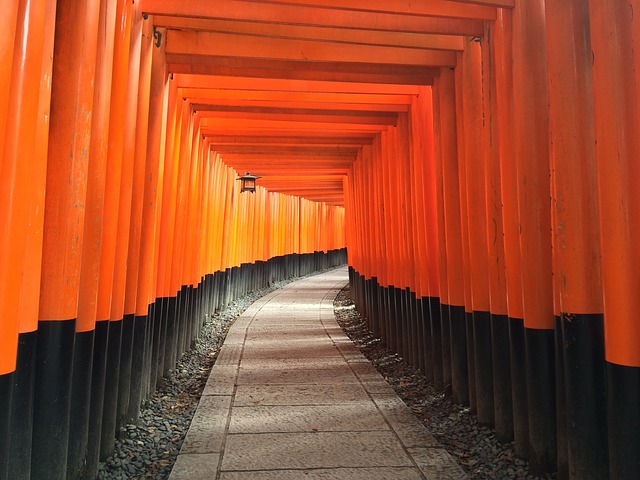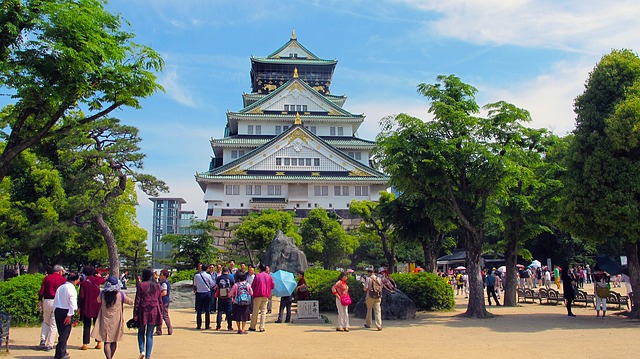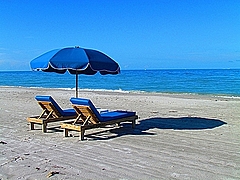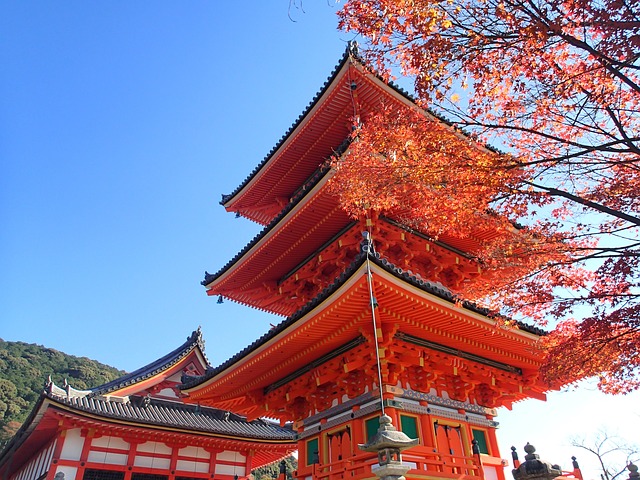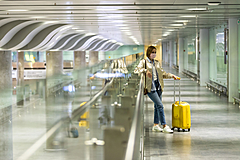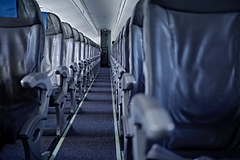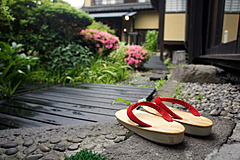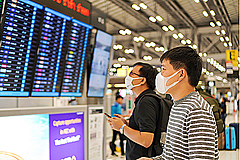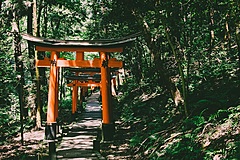Statistics
Closed accommodations outnumbered opened accommodations in Kyoto City through 2020 amid the pandemic
The total number of Japanese guests in major hotels in Kyoto City was down 32.5% year on year in 2020. New 518 hotels opened, while 580 hotels closed through 2020. The total number of hotels in Kyoto City decreased year on year for the first time since 2015.
Domestic travel consumption of Japanese travelers halved to 9.9 trillion JPY in 2020, and travel expenditure a traveler were also down
Domestic travel consumption by Japanese travelers was down 46.5% year on year to 2,694 billion JPY in the fourth quarter of 2020 (October to December 2020), and the yearly total accordingly decreased by 54.9% to 9,898 billion JPY. Travel expenditure was down 9.2% to 33,925 JPY a traveler a trip in 2020.
37% of Japanese people know a talked-about audio app ‘Clubhouse,’ and 5% want to use it
The awareness of ‘Clubhouse,’ a talked-about audio communication app, is 37% on average, but the rate rises to 47% among 20s. The ratio of ‘I want to use it’ is 14% among 20s, much higher than 5% overall, according to the Cross Marketing’s survey.
Domestic travel sales of 47 travel companies in Japan worsened again to a 65% reduction due to suspension of ‘Go To Travel’ program nationwide
Sales of domestic travel of 47 major travel companies in Japan were down by 38% to 128.1 billion JPY, worsening from a 25.8% reduction in November 2020, due to tentative suspension of Go To Travel’ nationwide amid a re-increase in COVID-19 cases.
Visitors to travel and transport websites of Japan reduced by around 20% in 2020
The top two websites in the travel and transport category were ‘jalan.net' and ‘Rakuten Travel’ in the same manner as a year ago. TripAdvisor, JR East and Yahoo! Travel were among top five, but all of them reduced visitors by around 20% compared to a year ago amid the pandemic.
The unsatisfactory rate in not traveling overseas is 36% in Japan, lower than 55% in APAC, according to Klook survey
Klook survey finds that the ratio of people who are unsatisfied with not traveling overseas currently was 36% in Japan, which was lower than 55% on average in APAC.
Guest nights in Japan worsened to a 38% reduction with the occupancy rate of lower than 40% in December 2020
The total number of Japanese guest nights was down 24.4% year on year to 28.7 million, dropping from a 16.1% reduction in November 2020 obviously because the Japanese domestic travel recovery program ‘Go To Travel’ has been suspended nationwide.
DMO KYOTO develops ‘Visit Intent Index’ based on accesses on five official websites, showing the bottom in April
DMO KYOTO has developed ‘Visit Intent Index’ to measure tourists’ intents to visit Kyoto in a quantitative way. In December 2020, both of actual visitors and the visit intent index dropped to 60.7 and 67.1 because ‘Go To Travel’ program was tentatively suspended amid re-spread of COVID-19.
Japanese overseas travelers were just 3.2 million in 2020, largely decreasing from 20 million a year ago
The number of Japanese overseas travelers was down 84.2% year on year to 3,174,200 in 2020, including 33,000 in December 2020 only.
International arrivals in Japan were just 4.1 million in 2020, including 59,000 in December 2020
The number of international arrivals in Japan was just 4,115,900 in 2020, which was one tenth of the government’s goal of 40 million for 2020. In December 2020 only, international arrivals were down 97.7% year on year to 58,700.
Domestic travel sales of 47 major travel companies in Japan recovered to a 26% reduction in November 2020, boosted by Go To Travel
Sales of 47 major travel companies reduced by 55.5% year on year to 198.8 billion JPY in total in November 2020, and sales of domestic travel were still down by 25.8% to 193.2 billion JPY, however, the monthly reduction rate improved from 38.7% in October.
More than 60% of all bookings in hotels in Kyoto City were cancelled in New Year holiday period due to suspension of ‘Go To Travel’
DMO KYOTO announced that the occupation rate of 35 hotels in Kyoto City was 31.1% in the New Year holiday period, and 63.8% of all bookings in the period were cancelled following the announcement of the tentative suspension of 'Go To Travel' nationwide on December 14 2020.
Sharing economy market scale of Japan is expected to grow to 14 trillion JPY in FY2030 without anxiety about COVID-19
Sharing Economy Association says that the sharing economy market scale of Japan is expected to reach 2.1 trillion JPY in FY2020 and to grow to 14.2 trillion JPY without any anxieties about COVID-19. The market scale of space sharing services including private home sharing will amount to 342.9 billion JPY in FY2020.
ANA and JAL suffered a 60% decrease in passengers during the 2020-2021New Year holidays, affected by suspension of ‘Go To Travel’
ANA and JAL reduced their domestic flight passengers by around 60% year on year and dropped the load factors to 40% during the 2020-2021 New Year holiday period, largely affected by suspension of the domestic travel recovery program 'Go To Travel' nationwide.
Kyoto City saw a 43% increase in Japanese guest nights in hotels in November 2020, the largest YOY growth ever
Japanese guest nights in 66 hotels were up 42.8% year on year in November 2020, which was the largest YOY growth since the survey began.The average occupancy rate was 63.2%, 22.2 points higher than October (41.0%), improving for seven months in a row.
Japanese guest nights in Japan recovered to a 16% reduction in November 2020, though low occupancy rates continued in urban areas
The total number of Japanese guest nights was down 15.7% to 34.2 million in November 2020, improving from a 35.2% reduction in October 2020 clearly because of ‘Go To Travel,' and international guest nights increased from 270,000 in October 2020 to 440,000 due to the limited ease of the entry rules.
Sales of 47 major travel companies in Japan recovered to a 66% reduction in October 2020, boosted by Go To Travel
Sales of 47 major travel companies reduced by 65.7% year on year to 155.6 billion JPY in total in October 2020. Domestic travel were down by 38.7% to 151 billion JPY, improving from from a 62.8% reduction in September, boosted by ‘Go To Travel' that has included Tokyo in October.
Japanese overseas travelers were down 98.1% to 30,000 in November 2020
The number of Japanese overseas travelers was down 98.1% year on year to 30,700 in November 2020.No large increase was seen in November, despite ease of quarantine for Japanese business travelers after returning to Japan and start of pre-test program for Japanese travelers in Hawaii.
International arrivals in Japan remained a 97.7% reduction in November 2020, despite doubling from October
The number of international arrivals in Japan was down 97.7% year on year to 56,700 in November 2020, doubling from the previous month (28,000 arrivals). Arrivals from China still decreased by 97.6% year on year to 18,100, but largely increasing from 4,500 in October.
Kyoto saw the first growth of Japanese guest nights in the past 13 months in October 2020 with the occupancy rate of 40% of higher
Japanese guest nights in Kyoto City in October 2020 were up 2.2% year on year, the first monthly growth in the past 13 months since September 2019, and the average occupancy rate was also up 8.2 point to 41.0% compared to September, marking the first 40% or higher since Declaration of the State of Emergency.

